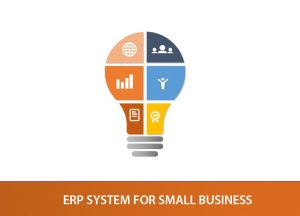The essence of supply chain management erp software — The epidemic has demonstrated the actual value of worldwide business partnerships. Even though we have recognized the benefits of digitization and automation of corporate processes, it has prompted us to evaluate how we might maximize efficiency.
Border restrictions worldwide produced a commodities crisis, affecting supply chain management. Consequently, we’ve understood the role of erp in supply chain management.
ERP Software for the Supply Chain!
-
A Plan to Improve Supply Chain Efficiency
Managing Supply Chains successfully requires careful planning. By building a complete Supply Chain strategy, you can focus on the critical aspects of operational success. However, it may appear to be demanding. Consequently, an erp in supply chain management system will provide you with a more efficient and flexible means to change the parameters that will enable you to operate the Supply Chain operations effortlessly.
-
The Management of Demand and Procurement
Managing needs and procurement will be simple with an erp scm in place because the program will automatically schedule a demand if you get an order. You will be able to plan production jobs using real-time data. Warehouse resource management, material transportation, and other procurement processes can be automated to make them more efficient.
-
Dealing with Purchases and Implementation
It is critical to measure the goods you purchase. Otherwise, you’ll have too much and too little. An ERP system with sufficient capabilities will assist you in automating the provision of products, services, and other resources required along the supply chain. From manufacture through delivery, the role of erp in scm will provide cross-platform insight into all parts of the Supply Chain.
-
Keeping an eye on the processing and documentation
The erp for supply chain management will assist you in creating detailed invoices that you can send to your clients following delivery. Furthermore, the ERP system simplifies the creation of import-export documents for cross-border shipments. The system will gather and archive shipping and delivery data seamlessly, reducing mistakes and ensuring on-time delivery and improved customer service.
-
Enhancing collaboration through transparency
The role of erp in supply chain will increase transparency among the team members engaged. Suppliers will also be linked to your ERP dashboard, allowing them to collaborate with you more effectively to reach your objectives. It will provide your staff with a comprehensive, real-time view of your activities. Furthermore, with increased visibility and openness, firms may develop sensible strategies for utilizing their resources.
-
Taking Measures and Conducting Inspections
It is hard to compare all real-time data to predicted goals and targets. Nevertheless, if you use a supply chain in erp, you can discover all the statistics you need to build an entire report. Then you may conduct your evaluation flawlessly and identify the holes in your company strategy.
Looking ahead!
The gains of unifying enterprise resource planning and supply chain management might be worth a fortune. From the perspective of ROI, investing in this software might provide you with a solution to better manage your business and its processes.
In a modern world where every organization is adjusting to trends, it is the greatest moment to include these Connected IT Consulting solutions into your business structure to reap long-term results.
You may also speak with our ERP experts to identify the best option for your company.
ERP Project Management
Business Process mapping
Small Business ERP
ERP Consulting



